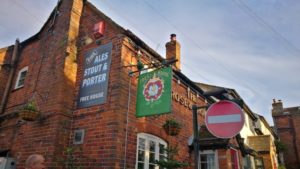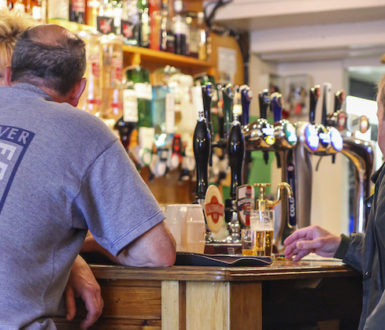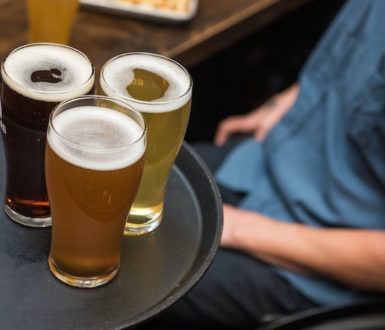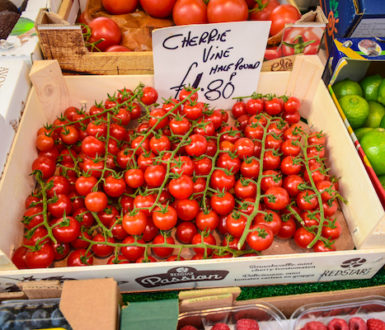What is a pub and why are there so many?

Pubs are a big part of British culture. The word ‘pub’ is short for ‘public house’. In the old days, they were a place for people to meet and drink beer (it was safer to drink beer than the dirty water). For this reason, sometimes they are called a ‘boozer’ (‘booze’ is slang for alcohol).
By 1577, there were about 17,000 pubs in England and Wales. People would go to one particular pub, known as their ‘local’, to meet friends and colleagues. Others were places where travellers could rest on long journeys. These were usually known as ‘inns’.
Pubs traditionally have a picture sign because most people could not read. Their names often reflect the history of the town/village, such as a local trade, sport or a famous story. A name with the word ‘arms’ usually refers to the ‘coat of arms’ (family symbol) of the local historical ruling family. Many pubs are among the oldest buildings in the area.
Today, most pubs are an important part of the local community, acting as a sort of community centre. Many also serve food. They are friendly and pleased to welcome visitors. In countryside areas, they are usually relaxed about muddy boots and dogs too! However, some pubs are aimed at a certain group of people. They might feel unwelcoming to anyone who doesn’t go there regularly. Look at online reviews to find good pubs.
Britain used to have many more pubs. About 22,000 have shut since 1980. More shut after coronavirus in 2020. However, in some places, the local community has bought the pub and runs it with volunteers to make sure it stays open. Owning a pub is a dream of many people.
MORE INFORMATION: There is a fun game called ‘pub cricket’ that you can play when driving through lots of towns or villages. One person starts. They then score points for each pub name that has legs (ie. a pub called ‘The Fox’ would have 4 legs because a fox has 4 legs = 4 points. One called The Coach & Horses would have 18 legs because there would be one coachman and four horses = 18 points). If you meet a pub name with no legs (such as The Rose and Crown, pictured above), it is the next person’s turn.



